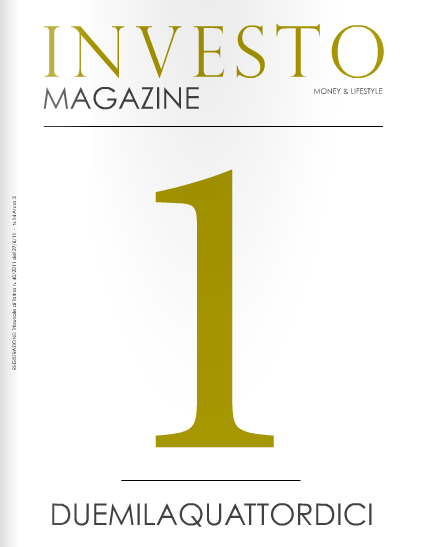Politics is grounded on ethic. The relationship between politics and ethic has been already theorized by Benedetto Croce and, before him, by Plato. Nowadays this relationship does not seem to exist anymore, politics looks like forgetting the moral principles of ethic. How to relaunch this relationship?
It is generous very dangerous discussion, because it leads us to the maximum level of inconclusiveness. It lead us into a pedagogic and psychotherapeutic vision of politics. Being politics basically powerless of doing something, not only for common good but also for itself, politics of the past twenty years has been like a carpenter who, having forgotten its primary purpose of making furniture, wasted time in taking care of the tools. Basically politics, when talking about politics, it talks about itself. Talking about electoral reform, constitutional reforms, reforms to reorganize politics itself. One of the most fatal prognosis has unfolded, the one I heard back in 1968 debating diametrically opposed logics concerning the politician independence. Today this independence is fully achieved as politics talks exclusively about itself. When talking about itself it arises a tragic jeremiad explaining why, as everything is unalterable, politics launches a desperate paean which takes on the ethical content ending up in a consolatory pedagogy of common life.
But what are the facts? Facts are extremely serious and they concern an important issue of politics, that is taxation: taxation cannot exist if there is no representation. This is the cry of the parliamentary riots against Crown spending during the English revolution. In the past twenty years, after a couple of legislation, the public deficit at the end of the First Republic rose by 30%. This means that both right and left have contributed to this dramatic deficit growth. Why? What’s happened? First of all these are the costs of bureaucracy spending of a State that is not able to do smart cuts. The number of Provinces is reduced while no public sector employees could never be fired. Is it an ethic issue? Yes it is, because reasonable calculation between revenues and expenses is needed. Tax burden in Italy has became a real obstacle in doing business. But in Italy the ratio between public sector employees and the general population is 1 out of 12. In the United States the ratio is about 1 out 100. How can a State burdened with this expense survive? How can an economic system resist if the State does not slim down, the resources will not be allocated directly to productivity, to businesses, to the realization of the Common Good. This applies not only to the generation of material goods. Trade Unions often talk about jobs but the State does not create jobs. Businesses create jobs, And businesses in a globalized economy create jobs if they are able to positively compete with businesses producing all over the world. In Italy we will arrive to a point where we will not compete not even for making pizza if we will not be able to recover from this unbearable hemorrhage.
The real problem for politics is to put to an end a situation that in medicine has a name. When a woman is giving birth and she has the rupture of the uterus, she starts incessantly bleeding. If we keep transfusing blood in that body without removing the bleeding uterus, what is going happen? Exactly what is happing in the Italian economy right now: scattered intravascular coagulation, all arteries are clotted, the blood no longer circulates, thrombus clog everything and the patient will eventually die. The haemorrhage in economy is called public spending, because there is nobody who cannot allocate resources where these are needed. We often hear saying that there is no use in service cutting. Well, my last public assignment was as Director in the public local health unit (ASL). This ASL, which is said to be one of the most efficient one in Italy, had 1800 employees. Among these 900 were medical staff: doctors, nurses, healthcare workers, caregivers. The other 900 were administrative personnel. In a public local health unit what does a ratio of 1 out of 1 administrative and medical personnel mean? Let’s try to compare these data with a private health unit. What kind of productivity does it have? Is it just a kind of disability pension for those who are public bureaucrats? They are not even replaceable.
Allocating this amount of recourses in the public sector because of nepotism, for passiveness, has led Italy to a disaster. Politics cannot resolve this problem. The truth is that if we do not cut the living flesh, the patient decomposes and gangrenes. As I consider politics and the State so powerless and the power of bureaucracy so extended, I think the only solution for politics, which is worth trying, is to make the 9000 State bureaucrats think, practicing on them some pedagogic and psychotherapy activity. Right now in Italy they are the only ones which have the full citizenship rights. For all ordinary citizens the only thing to do is to say “stop, there is no more money left”.La politica trova le sue fondamenta nell’etica. Il rapporto tra politica ed etica era stato teorizzato da Benedetto Croce e prima ancora da Platone. Oggi sembra mancare questo rapporto, la politica sembra essersi dimenticata dei principi morali dell’etica. Come è possibile rilanciare questo rapporto?
È un discorso generoso e pericolosissimo, perché ci porta dentro al massimo grado di inconcludenza. Ci porta dentro una visione pedagogica e psicoterapeutica della politica. Essendo la politica fondamentalmente impotente nel fare alcunché, non solo per il Bene Comune ma anche per se stessa, la politica negli ultimi vent’anni è stata come un falegname che, avendo dimenticato la sua funzione precipua che era quella di fare mobili, si è attardato esclusivamente ad occuparsi di utensili. Fondamentalmente la politica, quando parla di politica, parla di sé. Si parla di riforma elettorale, di riforme costituzionali, di riforme di riorganizzazioni della politica stessa. Si è realizzata la più infausta delle profezie che avevo sentito raccontare nel ’68 con logiche diametralmente opposte riguardanti l’autonomia del politico. Oggi l’autonomia del politico si è realizzata completamente, perché la politica parla esclusivamente di se stessa. Quando parla di sé, eleva una tragica geremiade dalla quale si evince che, siccome tutto è immodificabile, la politica lancia questo peana disperato che assume il contenuto etico, finendo per ridursi come una pedagogia consolatoria della vita comune.
Ma quali sono i fatti? I fatti sono maledettamente seri e riguardano una questione importante della politica che è quella della tassazione: non ci può essere tassazione, se non c’è rappresentanza. Questo è il grido delle rivolte parlamentari che ponevano un freno alle spese della Corona durante la rivoluzione inglese. In questo ultimo ventennio, avendo fatto un paio di legislature, il deficit pubblico dalla fine della Prima Repubblica è salito di circa il 30%. Questo vuol dire che destra e sinistra hanno entrambe contribuito a questa crescita drammatica del deficit. Perché? Che cosa è successo? Sono i costi innanzi tutto della spesa burocratica di uno Stato che non fa tagli intelligenti. Si riducono le province ma nessun dipendente pubblico potrà mai essere licenziato. È un problema etico? Lo è, perché bisogna fare un conteggio congruo tra entrate e uscite. Il carico fiscale in Italia è diventato un ostacolo assoluto alla possibilità di fare impresa. Ma in Italia c’è un rapporto dipendenti pubblici e popolazione generale di 1/12. Negli Stati Uniti il rapporto 1/100 circa. Può reggere un paese gravato da questa spesa? Può reggere un sistema economico in cui se lo Stato non dimagrisce, il volume di risorse non potrà mai essere diretto alla produttività, alle imprese, alla costruzione del Bene Comune. E questo non vale soltanto per la generazione di beni materiali. Il sindacato parla spesso del lavoro ma lo Stato non crea il lavoro. Il lavoro viene creato dalle imprese. E le imprese in un’economia globalizzata creano lavoro, se possono competere in modo costruttivo con imprese che producono in tutto il mondo. In Italia si arriverà al punto che non si competerà più neanche per fare le pizze, se non saremo in grado di correre al riparo da questa emorragia intollerabile.
Il vero problema della politica è porre fine a una situazione che in medicina ha un nome. Quando una donna partorisce e ha una rottura dell’utero, comincia a sanguinare in modo irrefrenabile. Se continuiamo a trasfondere sangue in quell’organismo senza togliere l’utero che sanguina, che cosa succede? Succede quello che sta capitando all’economia italiana oggi: coagulazione intravasale disseminata, tutte le arterie si bloccano, il sangue non circola più, i trombi ostruiscono tutto e alla fine la paziente muore. E l’emorragia in economia si chiama spesa pubblica, perché non c’è nessuno che non possa ricollocare risorse laddove le risorse servono a qualche cosa. Si sente spesso dire di non tagliare i servizi. Bene, il mio ultimo lavoro pubblico è stato fare il direttore sanitario in una ASL pubblica. In questa ASL che passa per essere una delle più efficienti in Italia c’erano 1800 dipendenti. Di questi i sanitari erano 900, medici, infermieri, OSS, ADEST. Gli altri 900 erano amministrativi. In una azienda sanitaria locale cosa si fa un rapporto 1/1 tra amministrativi e sanitari? Proviamo a confrontare questi dati con un’azienda sanitaria privata. Che produttività ha, se non una sorta di pensione di invalidità per quelli che fanno i burocrati pubblici? Non sono neanche ricollocabili.
Questo aver allocato questa quantità di risorse nel pubblico per clientelismo, per passività, alla fine ha portato l’Italia a un disastro. La politica non può certamente mettere mano a questo problema. La verità è che, se non tagliamo nella carne viva, il paziente si decompone e va in cancrena. Considero talmente impotenti lo Stato e la politica e talmente dilatato il potere delle burocrazie che credo che l’unica azione politica che valga la pena di fare sia quella di far ragionare i 9000 burocrati dello Stato, facendo su di loro un’attività pedagogica e psicoterapeutica. In questo momento in Italia sono gli unici che hanno il pieno godimento dei diritti di cittadinanza. Per tutti i cittadini comuni l’unica cosa da fare è dire “basta, perché soldi non ci sono più”.
» 2013 - Numero 6, In evidenza » Let’s shrink bureaucrats’ brainsStrizziamo i cervelli...






 youhost
youhost